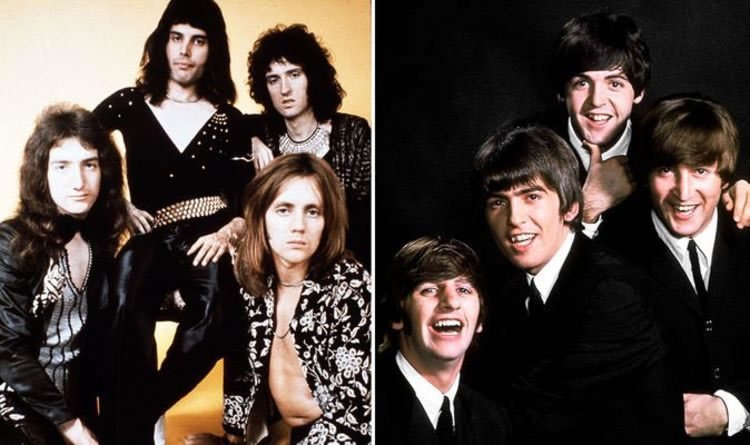A Soundtrack for Change: The 60s
The 1960s witnessed a seismic shift in American culture. The Vietnam War, the Civil Rights Movement, and the rise of feminism all demanded a voice, and music became a powerful platform for dissent and social change.
Soul Power: Soul music, with its roots in the African American experience, became a rallying cry for equality. Artists like Aretha Franklin and Marvin Gaye channeled the frustrations and aspirations of the Civil Rights Movement with songs like "Respect" and "What's Going On."
Folk Revival: Folk music, often characterized by acoustic guitars and poignant lyrics, provided a platform for social commentary. Bob Dylan's songs like "Blowin' in the Wind" and "The Times They Are a-Changin'" became anthems for a generation yearning for change.
Rock and Roll's Rebellion: Rock and roll, initially seen as a teenage fad, evolved into a potent force for expressing youthful rebellion and questioning authority. The Beatles, The Rolling Stones, and Jimi Hendrix pushed boundaries with their electrifying sounds and lyrics, inspiring a generation to challenge the status quo.
Beyond the Protest Songs: A Tapestry of Genres
The 60s weren't just about protest music. It was a period of immense musical innovation that birthed new genres and iconic artists:
Surf Rock: The Beach Boys captured the California sunshine with their catchy melodies and tales of love and surfing.
Motown: Motown Records, a Black-owned powerhouse, delivered a soulful blend of pop and R&B, with artists like The Supremes, Marvin Gaye, and The Temptations captivating audiences worldwide.
Psychedelic Rock: Emerging from the counterculture movement, psychedelic rock explored altered states of consciousness through experimental sounds and lyrics. Pioneered by bands like Pink Floyd and The Doors, the genre continues to influence contemporary music.

The 70s: Evolution and Diversification
The 1970s witnessed rock music further diversify, with subgenres like hard rock, heavy metal, and disco emerging. Social and political concerns remained prominent alongside a growing focus on personal expression:
Glam Rock: flamboyant artists like David Bowie and Freddie Mercury blurred the lines of gender and challenged societal norms with their flamboyant costumes and theatrical performances.
Hard Rock & Heavy Metal: Led Zeppelin and Black Sabbath ushered in a heavier sound, exploring themes of darkness, rebellion, and social issues.
Disco: Disco, with its infectious rhythms and emphasis on dancing, provided an escape from the social unrest of the time and celebrated inclusivity. Artists like Donna Summer and The Bee Gees dominated the dance floors.
Singer-Songwriters: Artists like Joni Mitchell, James Taylor, and Carole King emerged, captivating audiences with their introspective lyricism and personal narratives.
The Enduring Legacy: Inspiration Across Generations
The music of the 60s and 70s continues to hold immense relevance today. Here's how it continues to inspire:
Social Commentary: The era's music serves as a powerful reminder of the ability of music to spark conversation and inspire social change, offering lessons for addressing contemporary issues.
Diversity and Creativity: The sheer diversity of styles from this era encourages exploration and appreciation for different musical approaches, inspiring contemporary artists to push boundaries.
Lasting Melodies and Performances: Many songs from the 60s and 70s are timeless classics, their melodies and musicianship staying relevant across generations. They continue to be covered, sampled, and reinvented by new artists.
Sense of Community: Music from this era provides a shared cultural experience, connecting people of different ages and backgrounds through a love of these iconic sounds. This can be particularly meaningful, for instance, when creating playlists for elderly care tips to connect with residents who grew up with this music.

Conclusion: A Legacy of Sound and Social Change
The music of the 60s and 70s transcended its time. It served as a powerful soundtrack to social change, a canvas for artistic expression, and a foundation for countless musical innovations that continue to inspire. By exploring and appreciating this music, we gain a deeper understanding of history, connect with the emotions and challenges of a bygone era, and find inspiration for tackling the issues of our own time.
The enduring legacy of this music extends beyond cultural impact. Studies have shown that listening to familiar music from one's youth can have significant benefits for seniors, particularly those experiencing memory decline. The familiar melodies and lyrics can trigger positive memories, evoke emotions, and even improve cognitive function. Incorporating these classic songs into activities and playlists can be a valuable tool for caregivers implementing elderly care tips.
For example, creating a playlist filled with favorite Motown tunes from the 60s can spark joy and encourage movement during a group exercise session. Similarly, playing classic rock anthems from the 70s during social gatherings can foster a sense of community and shared nostalgia among residents.
By harnessing the power of music, caregivers can create a more enriching and stimulating environment for seniors, promoting both physical and mental well-being.
The music of the 60s and 70s serves as a potent reminder that music is more than just entertainment. It's a powerful tool for social change, a timeless form of artistic expression, and a source of inspiration and connection across generations. As we explore these iconic sounds, we not only gain a deeper understanding of history but also unlock their potential to enrich the lives of others, including our elders.

























